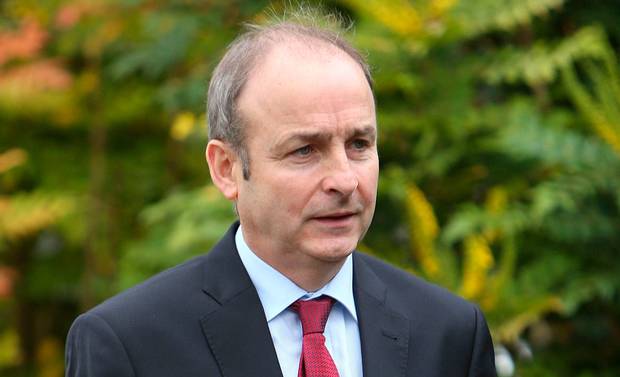To hear the representatives of Ireland’s two biggest parties discuss crime this election cycle, one could be forgiven for thinking Ireland is descending into anarchy. Fianna Fáil TD Padraig O’Sullivan, in a statement displayed proudly on the party website, says “people are genuinely scared in their own communities…with many of them telling me they are too afraid to leave their homes in the evenings”. Taoiseach Leo Varadkar just last week described Fine Gael as “the party of law and order”, before pledging to recruit thousands of new gardaí. Mícheál Martin even suggested, in a radio interview, amending the constitution in some unspecified way to make the prosecution of “gangland crime” swifter.
There is no denying that the murder of Keane Mulready-Woods and other recent incidents of violence around the country are both tragic and worrying, and many people in affected communities are truly afraid for their safety and that of their families. But perspective is important, especially from a political standpoint. The number of homicides in Ireland has halved in the last decade. Our rate of violent crime in general, when compared with other developed countries, is normal to slightly below average. There is not a crime wave in progress.
“Our rate of violent crime in general, when compared with other developed countries, is normal to slightly below average.”
But that’s little comfort if it’s your community living in fear, of course. So let’s talk about solving the problem that does exist. As mentioned above, policy promises have centred around enforcement, increased paramilitarisation of the Gardaí, and phrases like “behind bars” or “zero-tolerance”. One has to ask, does anyone involved seriously think these things will solve the issue long-term? Has there been a single moment of thought given to where the problem of organised and violent crime comes from? Because it’s not that some people are just born evil. This is a social problem tied closely to systemic poverty and lack of economic opportunity. It’s also a direct result of the state’s continued policy of drug prohibition – drugs are illegal, people still want drugs (because they’re addictive), so the businesses that sell drugs are criminal enterprises.
The solutions therefore don’t lie in “law and order” approaches. They lie in long-term investment in disadvantaged communities and moves towards the wholesale decriminalisation of all illegal drugs. We know these things dramatically reduce organised crime because they have worked in other countries; Portugal radically upended its drug policy in 2001, and crime and drug use have both dropped dramatically. But these measures, dealing with the source of the issue, require long-term commitment and difficult conversations about our cultural attitudes to things like addiction and poverty. Those things require more political courage than either Fianna Fáil or Fine Gael have, so they just talk gleefully about throwing more people in overcrowded prisons.
It’s also important to note that this simply wasn’t on anyone’s political radar a month ago. If Ireland is truly being overwhelmed by lawlessness, and the political centre-right is truly committed to fixing it long term, how come they only seem to talk about it when it’s recently been in the news? With all those things in mind, it’s hard not to see this as a nakedly opportunist attempt to capitalise on people’s genuine fears for short term electoral gain. This is, not to mince words, pretty disgusting.
“…increasing the severity and militarism with which organised crime is pursued, while not actually changing the conditions that create organised crime, will just cause violence to increase.”
More than the political cynicism of the whole thing, it’s also important to note the danger of the “tough on crime” rhetoric of the two parties. Proposals to dismantle criminal defendants’ rights to due process would just be an inherent assault on our civil liberties and the rule of law. It’s not possible to construct a legal system that is exclusively unfair to bad people. This will result in wrongful convictions and the imprisonment of innocent people, without a doubt. And increasing the severity and militarism with which organised crime is pursued, while not actually changing the conditions that create organised crime, will just cause violence to increase. Mexico, Brazil and the United States are evidence of what happens when you escalate the war on drugs and crime. Crime escalates back.
Given the cynicism of the whole enterprise and given these parties antithesis to actually fulfilling their election promises, it’s unlikely any of this discussion will even be remembered by February 9. But it’s an illustration of the ways in which these two groups are willing to play kickball with serious social problems, how quickly they resort to ultra-conservative rhetoric when they feel it might benefit them, and the disinterest they have in improving the country in the long term. I’m disappointed but I’m not surprised.






